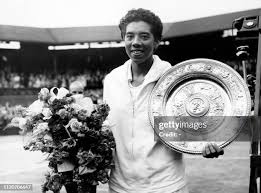
Introduction
The Wimbledon Championships, held annually in London, are one of the most prestigious tennis tournaments in the world. Since its inception in 1877, Wimbledon has seen a plethora of remarkable athletes triumph on its grass courts. The significance of this tournament goes beyond the pursuit of a trophy; it reflects the spirit of sportsmanship and competition, showcasing the evolution of tennis over the decades. For fans and emerging players alike, understanding the history and achievements of Wimbledon winners provides invaluable insight into the esteemed legacy of the sport.
Historical Winners
Over the years, many players have etched their names into Wimbledon history. The first champion was Spencer Gore in 1877, who won the men’s singles title. Since then, legends such as Björn Borg, Serena Williams, and Roger Federer have dominated the tournament’s landscape. Borg, with his five consecutive titles from 1976 to 1980, set a high standard for excellence and artistry on grass. Serena Williams has captured a total of seven singles titles, making her one of the most successful female players in the tournament’s history.
Recent Champions
In recent years, the competition has remained fierce. In 2021, Novak Djokovic claimed the men’s title, adding to his already impressive collection of Grand Slam titles, demonstrating both resilience and skill. Ashleigh Barty, who won the women’s singles title in 2021, became the first Australian woman to win the event in 41 years, marking a significant moment in sports history. The ongoing rivalry between players like Djokovic, Rafael Nadal, and emerging stars suggests that the landscape of Wimbledon is ever-evolving, with each year bringing new excitement.
The Impact of Wimbledon Winners
The champions of Wimbledon do not just represent personal achievements; they inspire millions of fans and aspiring tennis players around the world. Their victories provide a platform for promoting the sport, encouraging increased participation at grassroots levels. Moreover, the winners’ endorsements and engagements often lead to significant funding for youth programs and facilities, thereby nurturing the next generation of tennis talent.
Conclusion
The legacy of Wimbledon winners is a testament to the game’s rich history and enduring appeal. As current champions compete to carve their names into tennis folklore, fans remain captivated by the stories of past victors. Looking ahead, Wimbledon will continue to serve as a beacon for tennis excellence, igniting passion in future athletes and ensuring that the tradition of this storied event remains alive for generations to come.
You may also like

The Life and Legacy of Sean Avery

The Legacy of Howard Webb in Football Officiating
